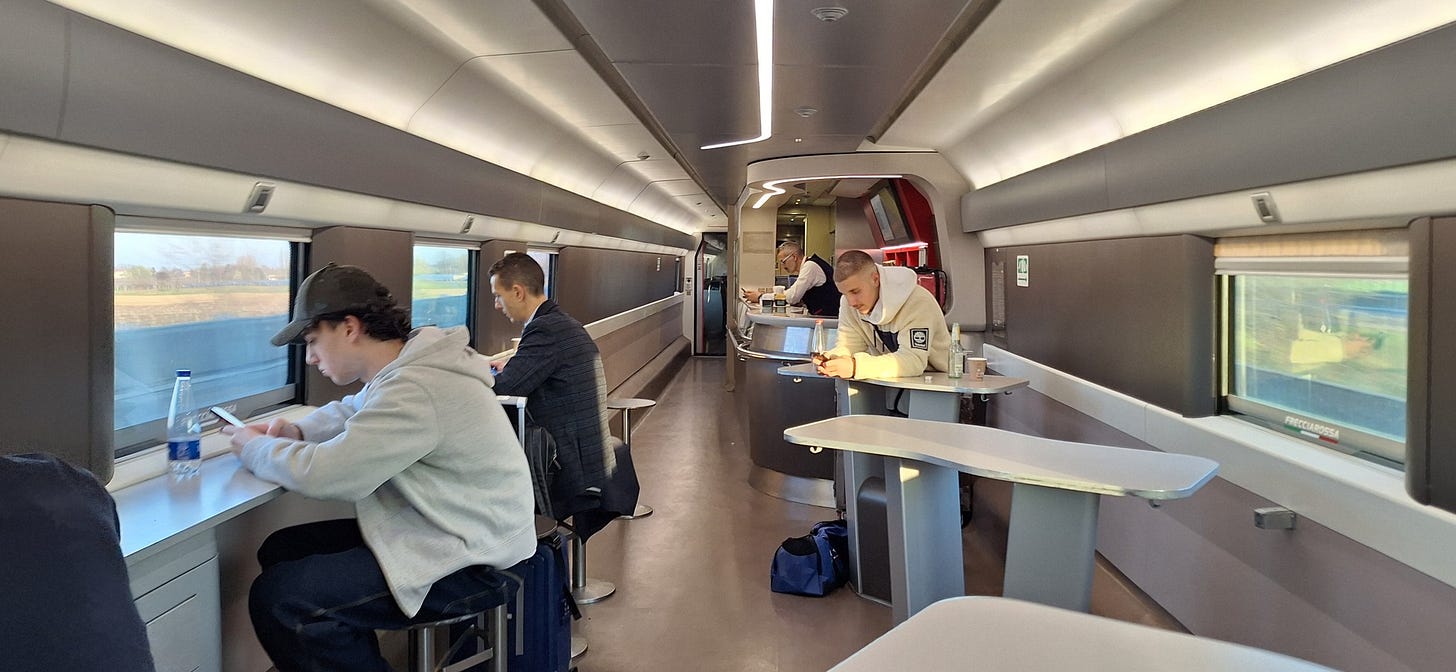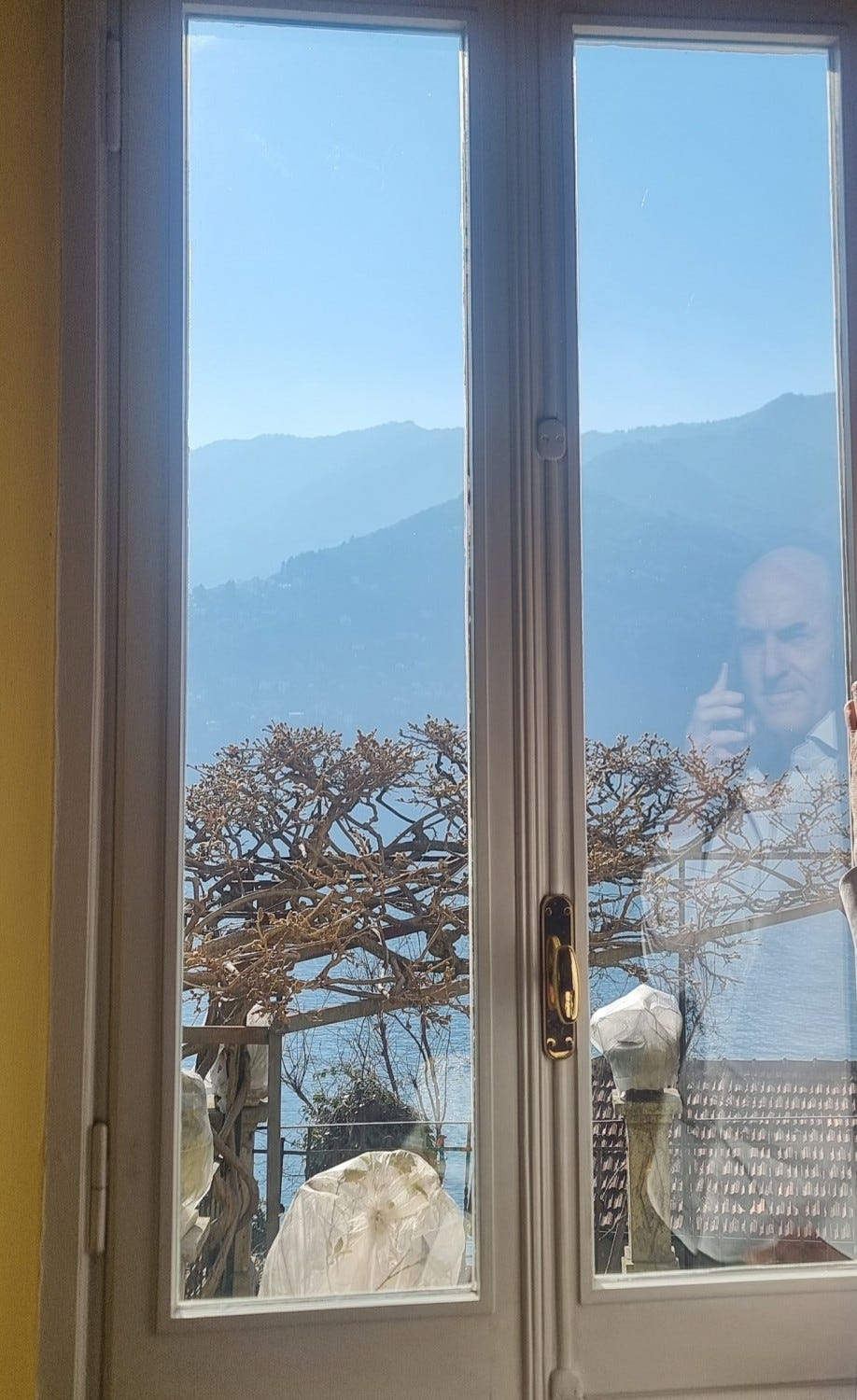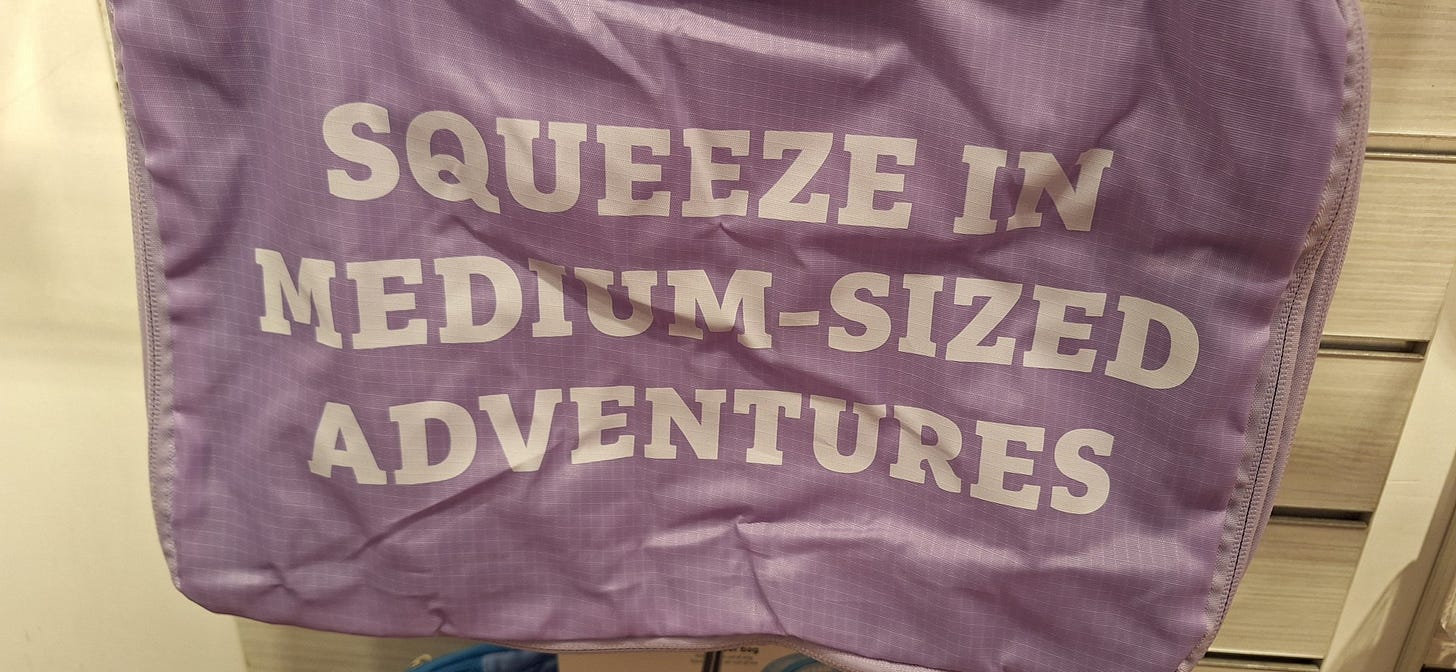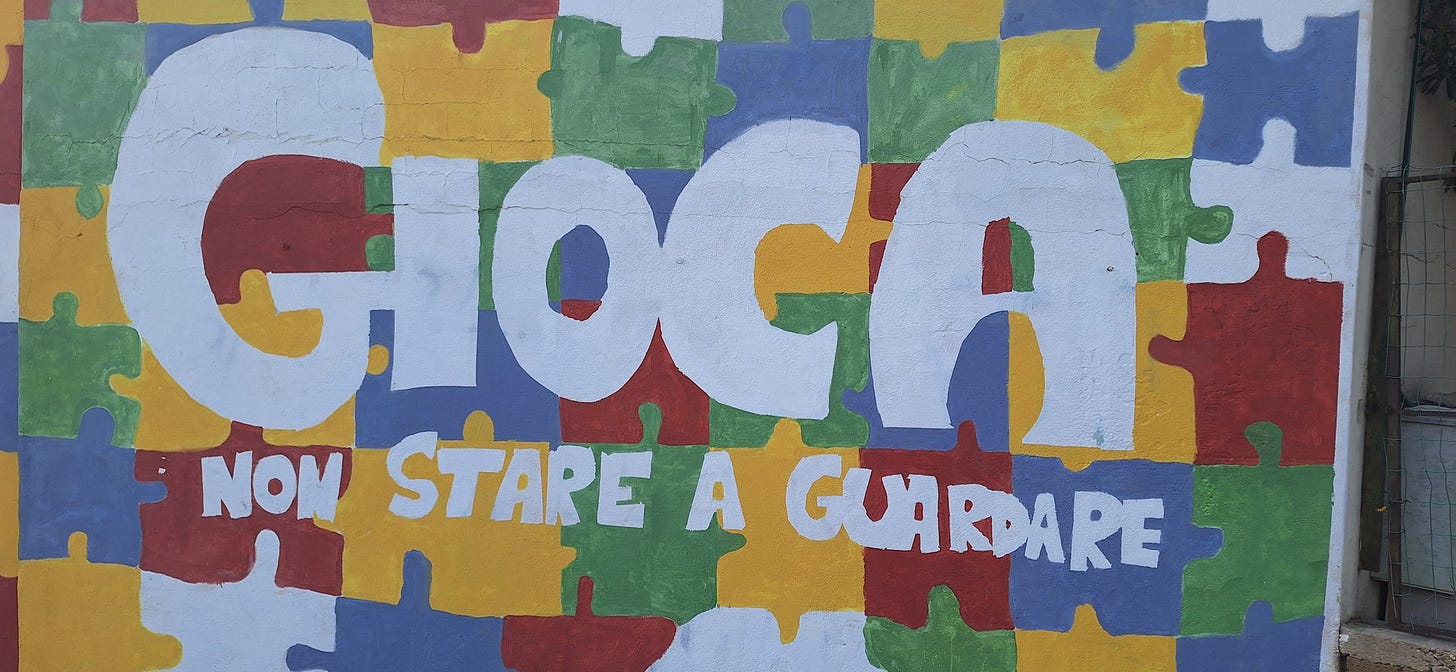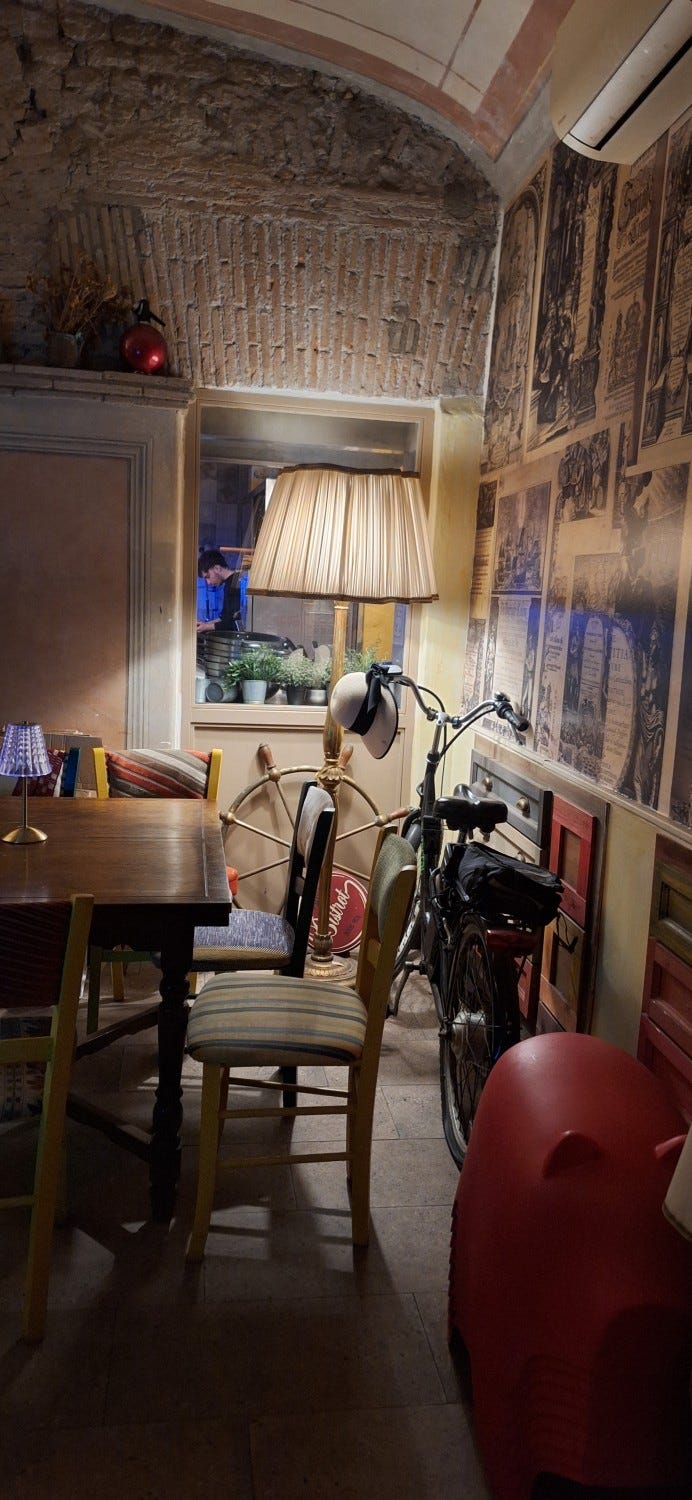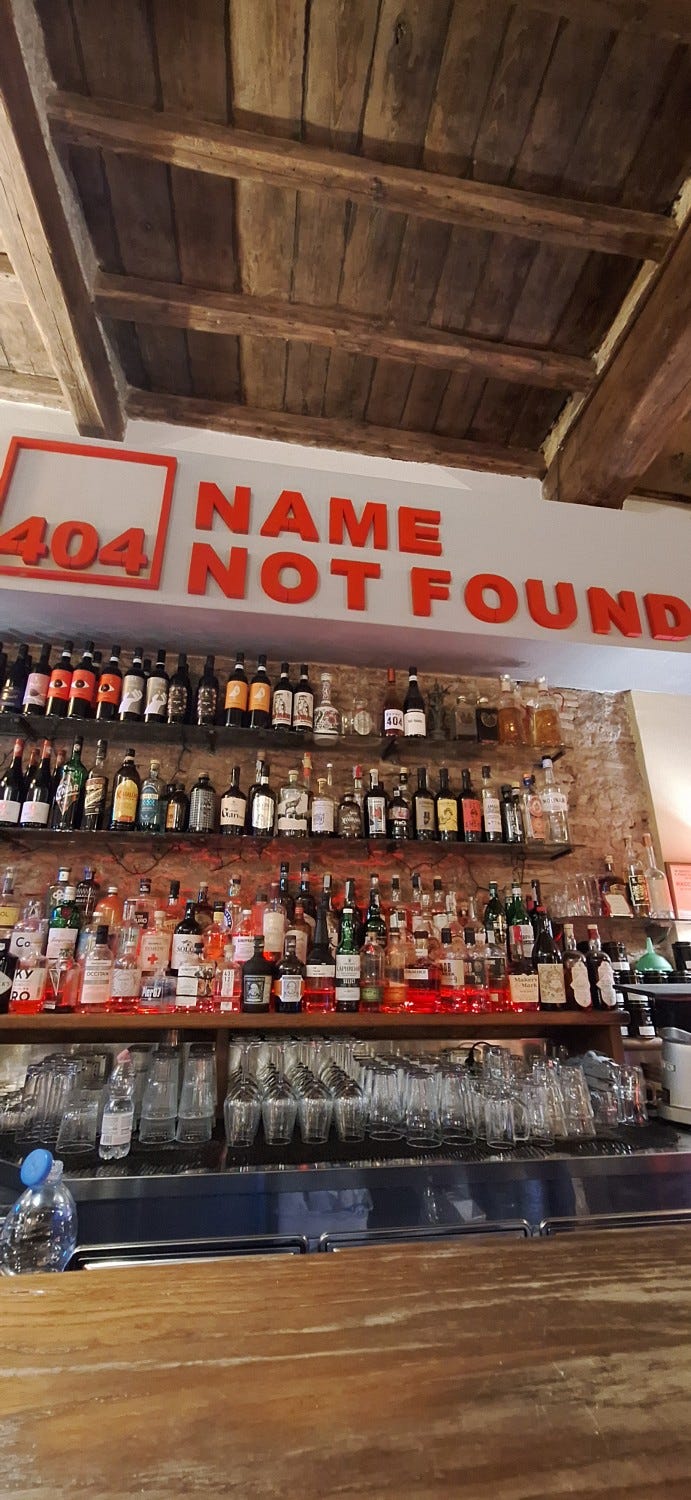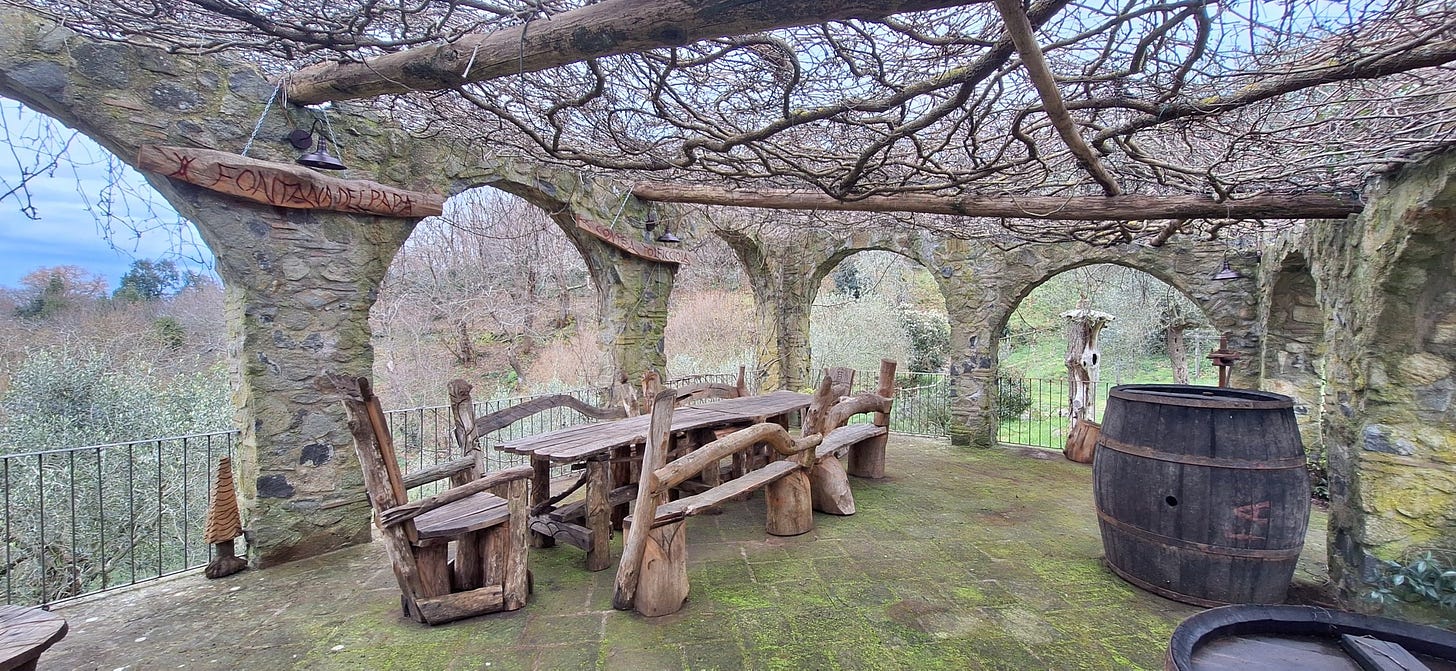A little over a year ago I wrote an article of what life as a digital nomad is like to help others who might be interested get a better feel of what it means (here's the link to that article in case of interest: https://www.linkedin.com/pulse/what-life-digital-nomad-really-means-surprising-doors-york-zucchi-nx1me)
As we celebrated today 3.5 years of this lifestyle I thought to update it with a few pointers. I hope you will enjoy my pathetic excuse to make you envious by pretending to share interesting perspectives and of course tons of pics :-)
Jesting aside, please remember that my journey may not be your journey. Use this (or anything I write) as inspiration to think differently about your options, but my circumstances are most probably not the same as yours so adapt your plans accordingly.
Have the courage to let go of what's holding you back
I suspect my main hope in writing this article however is to plant the seed in you to start thinking of a different life... Too often we are stuck in routines and jobs (if you are lucky enough to have one) because that's how we always did it or because we need to pay the mortgage. I want to open the doors for you to see the world differently... Then of course it is up to you to decide if to start walking.
And if you are more visuall inclined, here's my photo diary (other than linkedin I don't do social media so am not on intagram, tiktok etc).
Plans Vs Life
First and foremost, realise that nothing will work out according to plan. There's a degree of uncertainty (hours, availability, working spaces and even where you will live) that takes time to get used to it (depends on you.. in our case ca 12 months) but once you do it is almost impossible to get back to the old way of living.
The way we did it was perhaps useful as an idea to others.... We started our lifestyle by taking a 3 months roadtrip in a car around South Africa, tent and sleeping bags in the back. No specific itinerary. Camping places, sometimes apartments, etc. But it was a familiar environment where we knew we would find a coffee place to be able to work from plus the weather is amazing. The memories we created from that were incredible. It was a soft start to the lifestyle... And it slowly moved us away from being constantly available to a midset of tackling what is important. That little change of perspective probably saves us 2 hours of time a day (important is relative of course but we define it as things that move the ball forward vs just doing things...)
It was for us the perfect start and it gave us a way to taste if the 'homeless' lifestyle is something we want more of.
After that it really depends on you. In our case we decided we wanted more so started checking out ideas and options (far less analytically than this post makes it seems... Eg. We said "let's visit more places" followed by "how?" And then "maybe do housesits in different countries?"... etc.
What does it mean to not have a permanent home?
Slightly philosophically, what is a home? It is the 4 walls around you? Is it a place for your kids and family and friends to come over? Whatever it is, the definition is entirely yours to create. But be careful that the home doesn't become an anchor. For us a home became wherever we are... Strong in our bond and secure in the knowledge of what is important to us. But what happened when we sold our home and moved out was suprising nethertheless... More details are in the original article (link at top) but here's a quick summary:
Fixed costs went down enormously. We just did not realise how much one spends on one's home (maintenance, fixing, improving, decorating, bills, etc) as well as time (cleaning, gardening, hosting, etc). There was a slight increase in costs as we adjusted to a nomadic lifestyle and ate out more than usual, but once it normalised we are spending 30% less on average (that's like getting a 30% increase on the income side).
Much more time available... If you're the netflix, instagram or tiktok scrolling creature then it won't matter, but in our case (we don't really watch TV) it means much more time to learn things, try things, have new experiences, spend time in nature etc. I do about 40% of all my virtual meetings while walking in the forests or fields (2nd hand headsets are amazingly cheap and if you buy the wired kind they are almost free and don't need to be recharged).
Travel time increases (we don't own a car for sustainbility purposes even if from time to time we rent an EV)... But that is not wasted time as we use it to listen to podcasts, catch up with voicenotes, think of ideas, etc.
You own less (and buy MUCH less) as when you move you have to carry your shit with you. All we own fits into 4 large suitcases and 2 backpacks. Knowing this you are also buying much less as something has to leave if something new comes in :-). Huge saving and a powerful reminder that we buy a lot of things we want and not need.
The concept of a home changes... The idea that a home is a good investment is an out of date concept. Most of people's homes are a financial disaster in terms of investments. Of course there are exceptions but on the whole too many people take too large a mortgage to buy a way too big home which costs tons to maitain and cover the bills. The money we are not pouring into that goes now into various investments.
There's tons of places around the world that are sitting empty or where someone is needed (dog sitting while the owners are away for 1-3 months etc). For 2 years we spent the time living in some 8 places that were absolutely breathtaking while looking after people's homes). The options become even wider once people start to trust you and let you into their personal (non airbb) homes (for example, a shopowner in Italy in a small town had a beach side cottage (2 bedrooms) she didn't use for 7 months a year so she gave it to us to use for a nominal rent).
Sports and friends
This is a little trickier... In the past we used to go to our local squash centre regularly, see the same friends, etc. The new lifestyle means a lot of that has to move virtually. Depending on the sport you do the options are limitless...
Sport... We love hiking, playing padel, yoga, walking, swimming in lakes and rivers, etc. These are sports which you can find pretty much all around you. If you add stuff we don't like (running, etc) then the options increase :-) ... Plus it is really easy thanks to tech to meet new people.
Friends.... This is a bit more difficult. We have our really close friends and then circles of friends and then acquaintances. The really close friends stayed that (time and distance don't make a dent in the relationship). The rest comes and goes... But we do invest real time in maintaining the relationships. We have however created amazing new friendships with people we would not normally have met... From Iran to Afghanistan to German to French etc and that truly made us that much richer in our cultural understanding. But you don't need to travel to change this aspect of your life: just open the doors for more people you didn;t usually hang out with :-)
The important shift in my view is that when you have a fixed home you often end up a witness to life, surfing the waves of routine. When you start living a digital lifestyle you are an active player.
What about business?
Now this is where it gets interesting... And this is HEAVILY dependent on your skills and experience.
We decided we wanted to pursue this lifestyle but also weren't in a rush... That meant we started to say no to business opportunities that required us to be present. It's not wholly unlike the buying a car experience... Once you are thinking about a specific brand and colour you start seeing that specific brand and colour much more around you. I can't say it is immediate, but you suddenly realise your changed behaviour in whose emails you answer and which ones you decide to decline. We sold our properties and all the businesses (incl a safari lodge that was ranked 7th best out of 322 on TripAdvisor to an amazing family that has grown it even more... Please visit them if you are ever in South Africa www.zebrascrossing.com). It wasn't overnight of course, but it was much easier than we realised because we realised these were things that would keep us in a fixed location.
Here's a lit of what I personally experienced on the business side (as always, it is my pesonal biased experience):
Productivity is WAY up. When you open the laptop you focus and are much more action and progress driven vs just spending time on checking mails etc. My emails are shorter, to the point and are getting WAY much more engagement. People who are busy appreciate this New York (sorry... Had to put the pun in :-)
You get better at sorting out what's important to work and that fits with your vision.... You know the cliche' of the 20/80 rule? Well... We have less and less of the 80s. I now tell no to many more clients than I used to (rough thumb suck? Out of every 10 clients I say no to 6 of them if it means changing how we work... Sometime it is hard as the opportunities are substantial, but opportunities that take you away from your focus have a HUGE hidden cost to them.
You attract people who want to work with you but because of how you work (i.e. not regular office hours) you start not caring what hours they work just until the client is happy. Also not being always present means resiliance increases. If I were to be hit by a bus the whole company would continue without any problems as everything is digitised, processes are lean and easy to follow and our team is totally skilled and empowered. But I digress... The point is that you attract people who want to enjoy the work they do, are given the flexibility to decide how to invest their time and are not mired in pretend work (in fact we constantly ask our team to tell us what we can take away, how we can reduce the work tasks, etc - this had lead us to cancel tons of sofwares like Slack, Asana etc that promise a lot but are actually a time waste - for us at least). Today we run the whole company in Trello, Gmail and Whatsapp community (I hate that whatsapp is owned by meta, a company I think is ethically bankrupt and is comparable to big tobacco firms, but as a tool whatsapp is truly brilliant and has some amazing less known info organising features).
You attend less networking events etc. I might be biased but I get the sense that busy people want to know they can trust you (1st meeting in person) and then let's do virtually. In our case meeting in person is difficult but - and this is very specific to us - we have a truly amazing track record with most of our clients coming from word of mouth referrals. Today we invest time in meeting people ONLY AFTER we have worked with them for a while and everyone is happy. Not sure our approach is great, but it is working for us :-)
If you are starting out on this transformation journey my advice is to start building a really close relationship with 5-10 clients who do not need you phisically (PS - as a general rule you will learn a little less virtually as in person... It is stupid but that's my experience. Just be prepared).
You need to be really good at organising things... Invest USD 10 in a Get Things Done guide and setup whichever is the platform you use now the most and like (eg outlook, trello, etc) according to that methodology. You can thank me later. I learned this approach (without now becoming an evangelist for it) when I joined Goldman Sachs many years ago... The first week of work was a trainer teaching the GTD methodology as it is a way to use tech to handle real life and it's 100.000 tasks, projects, sub projects, events, emails, calls, etc that you get bombarded with).
Focus becomes your superstrenght. I can work on trains, busses, etc really easily (and actually I do better when I am in noisy and busy spaces) but you'll need to be able to shut out external distractions as you'll be working in many new environments. But for you it might be different?
Take all of the above with a pinch of salt of course. Your specific circumstances will be different.
Tools & Toys
Honestly? A good 15 inch laptop with a great battery life (10 hours or more is MORE than enough... It is really just enough to be able to sit in different corners without a plug if you need... But realistically you will never be away from a plug for more than 10 hours), a nice blutooth mouse (plus cheap mousepad), 2 earphones (one for podcasts, hiking calls, etc and one for business calls in loud places), a good phone (ps - a good phone should cost no more than 300-350 euros. If you are after high end stuff buy 2nd hand - you'll save 50-70% and they come with full guarantees usually. Then a 10.000 slim battery pack and USB-C slim charger. That's about it. And I carry a USB-C to HDMI adapter so I can plug into any Tv or monitor along the route.
Software costs? I have google workspace (really good, USD 12 per month unlimited storage space and super protection - 15 years and I never lost anything to date or had a data breach). That's about it. Trello is free. And obviously our SIM card for data (in Italy we pay EUR 7 for 150GB a month and unlimited calls). The laptop was bought refurbished and on special (EUR 600 vs normal EUR 1.500 costs). Thanks to google ALL my data is backed up so I can literally work from anywhere.
Reg phones... I love taking pics (as you can see :-) so wanted a nice camera but more importantly I bought into the Samsung ecosystem because of their DEX software. This is an option that allows you to plug a phone to a monitor and voila' you get a full almost desktop windows like experience.... Remember that I work in the google ecosystem so it doesn't matter where I work :-). At first I thought this was a silly samsung feature but it has proven itself a ridiculous useful invention. And less you think I love samsung: I don't. They make great hardware but they force you to watch ads if you want to update software on the samsung app store... Luckily I just use google apps store).
How this experience will shape you...
As mentioned earlier, my experience will for sure be different from yours. The point of this article is NOT to be prescriptive but rather to invite you to try new things in life... You don't have to go full monty and maybe your economic circumstances limit you but it doesn't mean you can't start to think about it and invite more opportunities in your life... Maybe they will be more local ones, maybe it will be new friends and jobs types...
My dream is that you start breaking out of your shell of routines a little. I am convinced deep down inside you there an explorer and adventurer wanting to get out. Maybe you have kids or grandparents you are taking care of, maybe you have other committments you feel are stopping you... But are they really? Am not suggesting to dump everything, but start having those conversations and brainstorming those ideas so that when you start to be ready (when kids eg are now old enough) you can start living your own life and... Welll.. as the motto of our company (today we run the online academies of 455 cities and communities in 28 countries)... Own Your Destiny.
If there are any aspects that I missed just comment below! :-)




